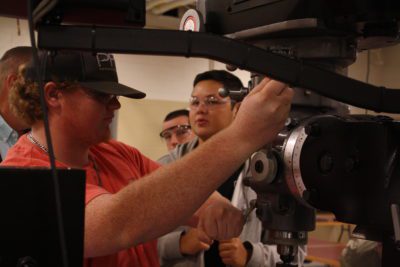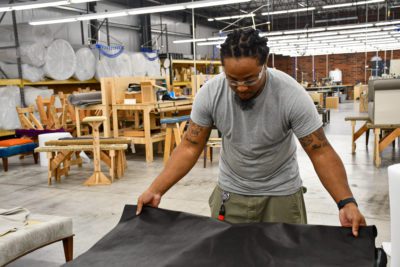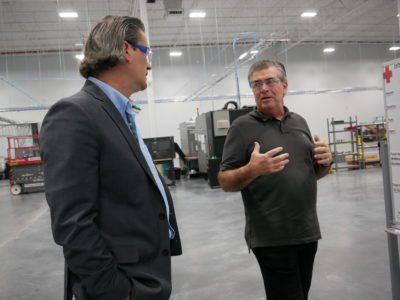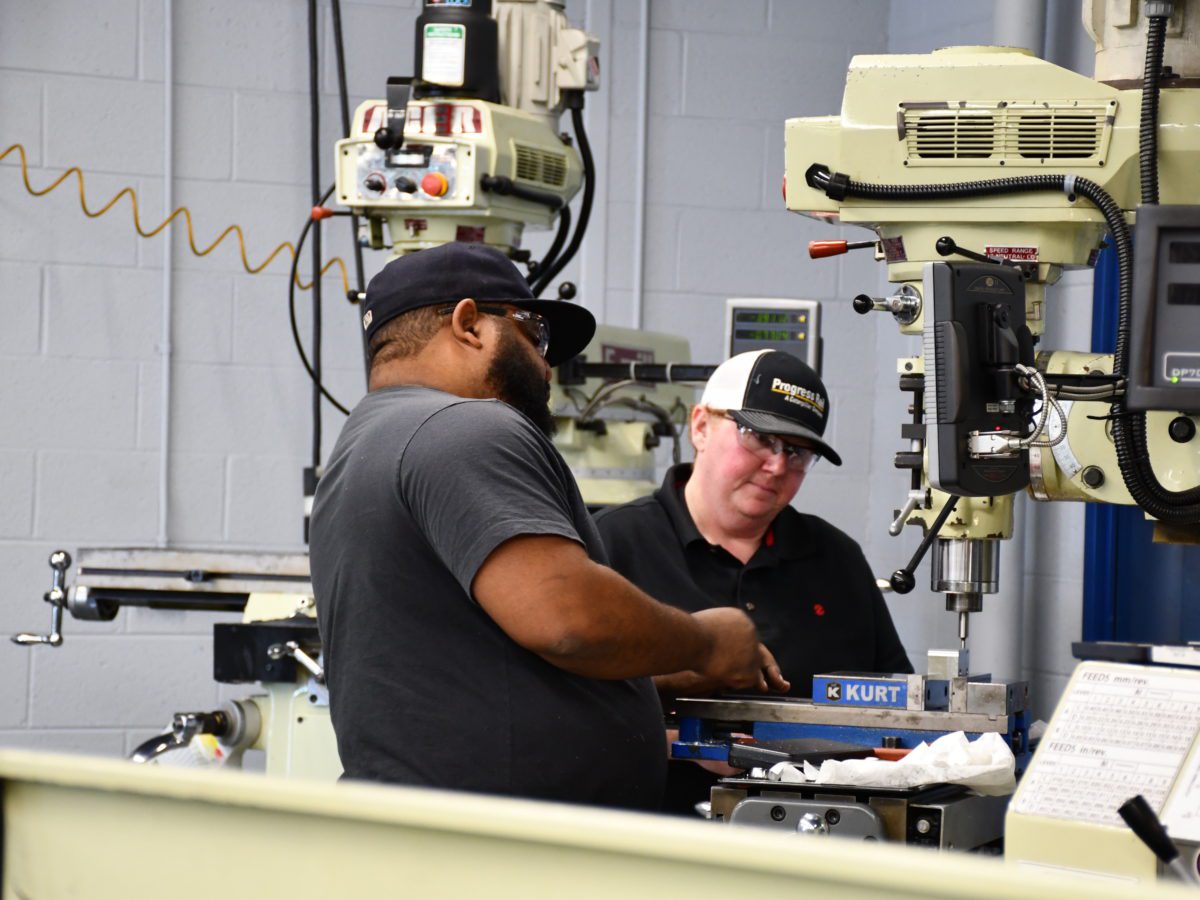

Share this story
- Forsyth Technical Community College added LEAP in 2019. LEAP is a college-sponsored apprenticeship model specifically designed for adults. The program has over 30 employer partners, spanning a variety of industries. @ForsythTechCC
- When LEAP started in 2019 @ForsythTechCC, it quickly became an apprenticeship model that garnered attention. It's unique in two ways: the college sponsors the program and it's designed specifically for adult learners.
|
|
When Nikki Murphy started her journey at Forsyth Technical Community College, she was juggling working full time and going to school full time. Balancing both was difficult and Murphy struggled to keep up with the demands.
“I thought about quitting many days,” Murphy said.
She eventually earned several credentials from Forsyth Tech and is now a project manager at Siemens Energy. Murphy also serves as a resource for mentors and mentees who are part of the Learn and Earn Apprenticeship Program (LEAP). Completing her credentials would have been more manageable, she said, if that apprenticeship program had existed when she was in school.
LEAP, a recent addition to Forsyth Tech that launched in 2019, is a two-to-three year program that helps adults earn a degree while receiving on-the-job training as an apprentice at one of the college’s employer partners. The program has garnered national attention through the years, winning multiple awards.
The recognition is due, in part, to its unique design.
LEAP is one of only a dozen or so apprenticeship programs across the state that is college-sponsored. Most apprenticeship programs are employer-sponsored, meaning companies are responsible for the operation and administration of the program. With Forsyth Tech as the sponsor, industry partners no longer bear the full responsibility of certain administrative tasks.
The college also specifically designed LEAP for adult students. Many traditional apprenticeship programs target students between the ages of 16 and 24. Encouraging adults over 24 to enter the program, participants said, is a game changer.
Apprenticeships that meet the needs of adults
Jashun Reed, a father of four, has worked with his current employer for years. Going back to school used to be out of reach because he couldn’t take time off work.
“Being an apprentice, he gets paid for work and school,” said Danielle Rose, director of experiential learning at Forsyth Tech. “He can now support his family and better his education.”
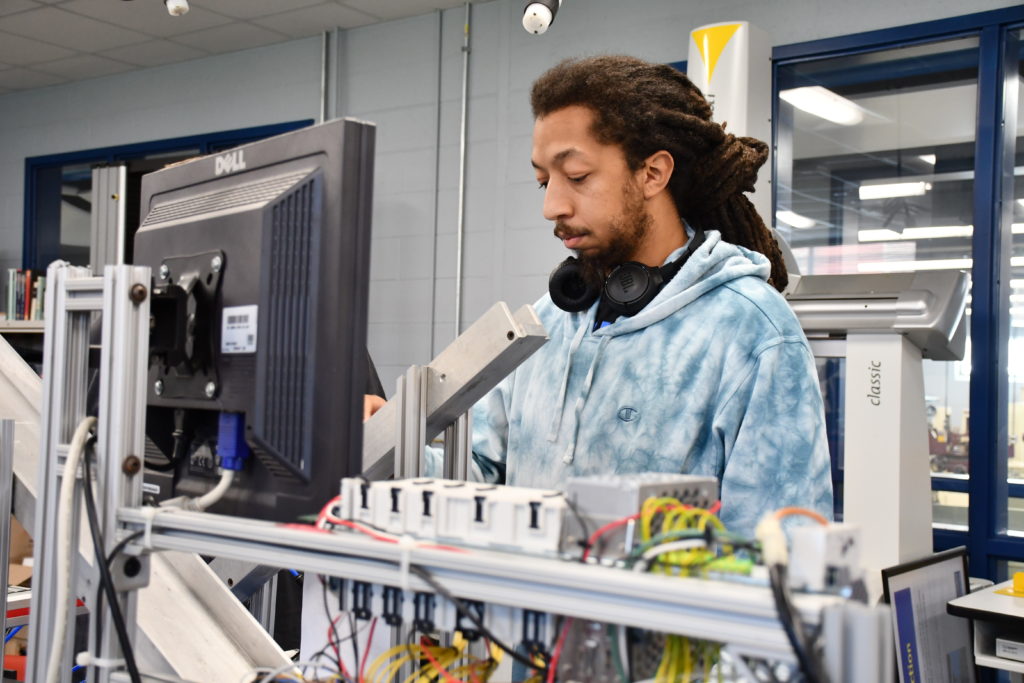

Apprentices receive numerous benefits, including paid time away from work to attend classes, increased wages with skills learned, structured on-the-job training, related technical instruction from the college, a national occupational credential, and more.
LEAP has also helped guide students like Killian Quaile. Before joining the program, Quaile was working a low-wage job and didn’t really know what career path to pursue next.
“He’d never even heard of machining,” Rose said.
Now, Quaile is what Rose calls a rock star – stepping into a field that matches his talents and passions. And as a hands-on, visual learner, Quaile said LEAP is a perfect fit.
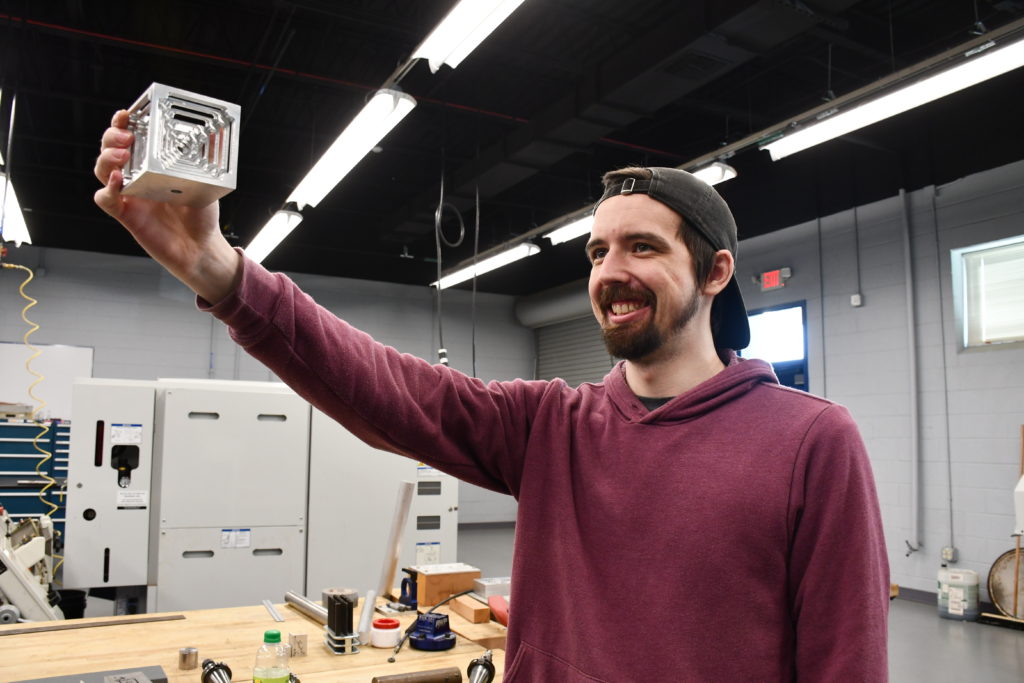

Apprentices also receive on-the-job training from experienced mentors at their employer sites. Siemens Energy’s Murphy serves as a resource for all local LEAP mentors and mentees.
The mentor piece is critical.
“We’re (mentors) out here being what we wish we would have had,” Murphy said.
Siemens created a layered approach to mentoring apprentices. Murphy coordinates regular check-ins as the company’s point of contact, along with two mentors, an immediate supervisor, and an operator mentor who conducts hands-on training. Murphy calls it a “community of support.”
It takes commitment from all those involved to make the program work, Murphy said – from the college and the employers.
“LEAP can’t complete anything without employer partners,” she said. “And employer partners can’t create anything without the LEAP partnership.”
It’s like a relay race, she said, with Forsyth Tech doing the heavy lifting on the front end and in the background, and employers reaching back to grab the baton. Then, both partners work together to help students reach their academic and career goals.
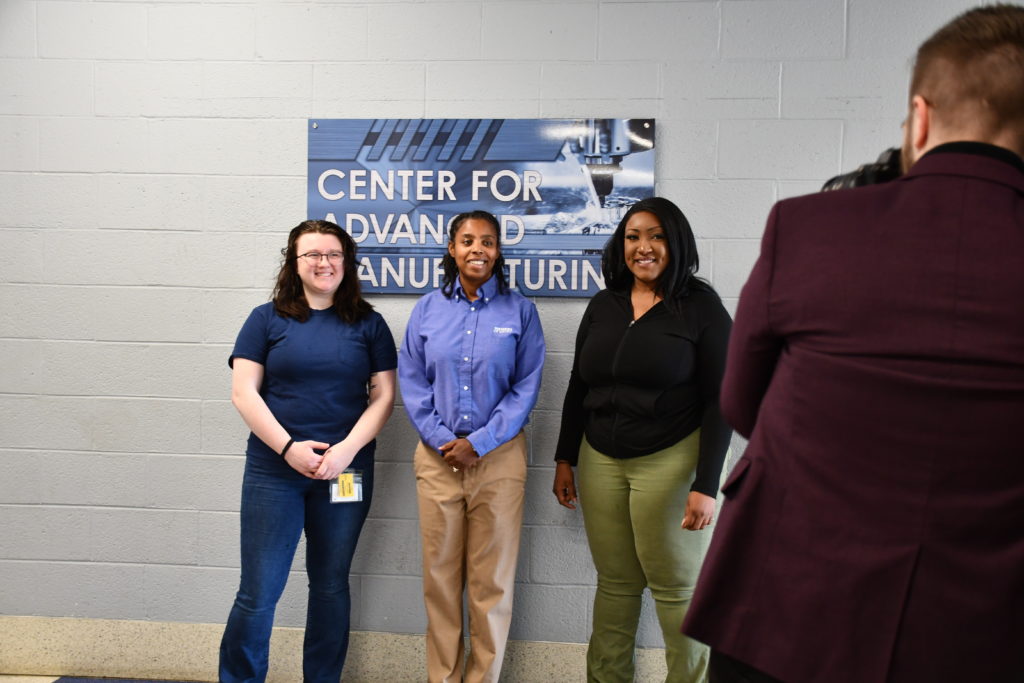

Elevating a workforce development model
Forsyth Tech’s annual economic impact totaled $400.4 million, according to a 2019-20 impact study. The education and training the college provides for its residents has the greatest impact, according to that same report. Students receive higher wages and increase the business productivity of their employers. In 2019-20, alumni generated $314.6 million in added income for the region.
Leaders from Forsyth Tech said LEAP has added value and made an impact, helping the college fulfill its mission as a “catalyst for equitable economic mobility, empowering lives, and transforming communities.”
The program has grown since its inception and now has more than 30 employer partners – spanning a wide range of industries like health care, advanced manufacturing, IT, automotive industry, and supply chain and logistics. Those employers include Siemens Energy, Progress Rail, Pepsi Bottling, Ventures, Novant Health, Atrium Health Wake Forest Baptist, and Zirrus, among others.
But elevating a workforce development model doesn’t end with LEAP or even Forsyth Tech.
In 2021, the U.S. Department of Labor awarded the college $5 million as part of a grant to support community colleges aiming to advance career pathways in manufacturing and ultimately help meet demands for more skilled employees.
As part of the grant, Forsyth Tech is leading a consortium of eight community colleges across the Piedmont Triad in a project called Aligning the Workforce Education System for Manufacturing. The college is using the Business and Industry Leadership Teams (BILT) model to develop courses for workforce development. BILT includes collaboration among community colleges and industry experts to build a curriculum that meets everyday and emerging employer needs.
Dr. Janet Spriggs, president of Forsyth Tech, said the model is one that other colleges can easily adopt. And, she said, its benefits are far-reaching. Employers gain workers that are trained for current industry needs, and students – highly desirable, prepared job candidates – can start their careers sooner upon graduation.
Both LEAP and BILT embody the collaborative efforts among partners to not only meet industry demands but also to increase social and economic mobility for students.
“This is an extraordinary opportunity for Forsyth Tech and our partner community colleges to build a clearer education-workforce development system, ultimately making North Carolina more prosperous,” Spriggs said in January 2021, at the time of the $5 million grant announcement. “The ultimate outcome will ensure coordination between workers’ skills and employers’ expectations, resulting in an increased number of adults with well-paying jobs in advanced manufacturing.”



